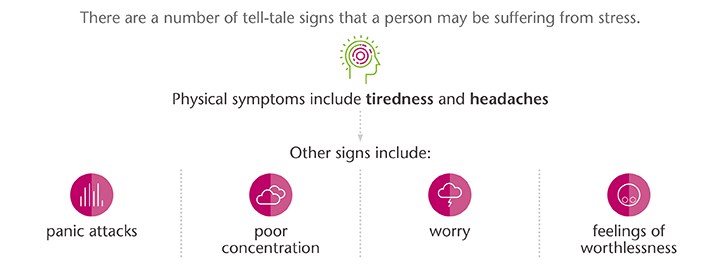But when these pressures or demands become excessive, and you can’t cope with them, then you can become stressed. For many people, stress is a significant problem that seriously affects their daily lives and the lives of those around them.
Stress is the most common mental health problem faced by people throughout the world. Two in five of us will experience stress at some stage in our lives and seven out of 10 of us know someone who has it.

So what is stress?
For most people, it involves anxiety or depression, or a combination of both. It becomes a problem when you can’t get rid of it, even though you try. You feel you are losing control of your life. You feel that you can’t cope with things that others can deal with.

The range of signs and symptoms of stress include:

The good news is that there’s a lot that can be done to support people struggling with stress.
NHSGGC’s stress in the workplace policy has been developed to support staff to deal with issues that contribute to stress at work and in the outside world. It encourages staff wellbeing by giving information on techniques and services which help individuals to cope with pressure and stress and equipping all staff, including managers, with tools to identify the risk of stress and intervene at an early stage.
The full policy is available via the link below:
We’re here to support you
Staff should be aware of the signs and symptoms of stress as outlined in this article, and know how to receive support if required. The organisation has put in place a range of measures to reduce the risk of staff being affected by stress in the workplace, but staff should be aware that stress can often originate from life outside of work. The organisation will do all it can to support you if you are suffering from stress.
